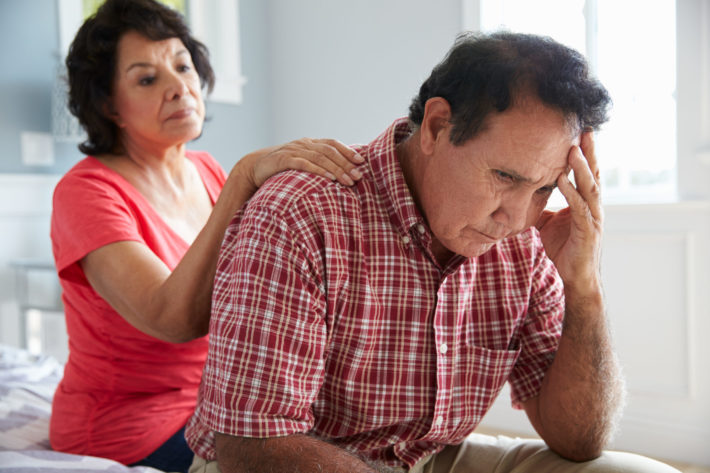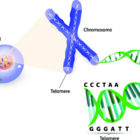
There is a lot of controversy and misinformation about menopause.
And that’s for the women.
But what about the men in a woman’s life? What do they know about menopause?
Surveys and studies show…not very much.
First of all, when it comes to healthcare, men generally take a back seat to women, who make most of the healthcare decisions for their households.
Some men are also going through their own changes.
About 10 to 25% have low testosterone levels and that throws them in to andropause – the male menopause.
And the symptoms sound a lot like the menopause their female partners are going through.
What are the symptoms of andropause?
| Mood swings | Muscle Loss |
| Depression | Weight Gain |
| Irritability | Gynecomastia (breast enlargement) |
| Memory loss | Insomnia |
Most men don’t talk about it, but for up to one fourth of them, it’s a very real experience.
What don’t men know about female menopause?
For most, just about everything. They don’t know what to expect – The average age of menopause in the U.S. is 51, but many women start to get symptoms in their early 40s. Symptoms can begin as early as 10 years before a woman’s final period and symptoms can last 3-5 years or more afterward — that’s some 12-15 years of disruptive symptoms, like hot flashes, night sweats, and insomnia. All they know is that something really strange is happening to their wife. And when these symptoms happen in the late thirties or early forties, it is very confusing for most men. And for many women.
What causes the symptoms? – Changes in the hormones estrogen and progesterone in and around menopause affect the woman’s ability to regulate her core temperature. That leads to uncomfortable hot flashes and night sweats. Basically, her thermostat isn’t working correctly. Some women may also have unexpected vaginal bleeding, vaginal dryness, and pain during sex. They also have mood swings and irritability, foggy thinking and memory loss. When both the man and the woman are having these problems, it’s a real challenge.
How should they react to the symptoms? – With understanding or at least with curiosity. Along with the physical changes, the emotional changes that often come with menopause can be difficult. Menopause is often viewed as a loss of youth and fertility potential, even if a woman doesn’t want more kids. That can cause sadness. It can be helpful if men try to imagine how it feels to go through a change that really defines a more youthful phase of life is now past. Thinking how you might feel being in her shoes can help a man support his partner’s changes.
How to discuss menopause with their partners? – Many men are uncomfortable discussing menopause. Try to talk about ways you can help her cope with her symptoms, or reduce her stress. Men can also encourage better sleep habits, or start an exercise regimen together. Encourage her to see a doctor to talk about treatments, and go with her to her visits. Listening in may also be helpful in case she forgets to ask a question or has difficulty remembering an answer.
How to keep up the romance? – Women still want to feel sexy during perimenopause and menopause. Don’t avoid intimacy; embrace it, as long as your partner feels comfortable. It’s always nice to have a romantic dinner or hold hands on a walk. Feeling sexy and appreciated doesn’t have to involve sex and can make a big difference in how she views herself and the two of you as a couple. Many women experience vaginal dryness or painful sex. Realize she isn’t not interested in you or in intimacy with you, she’s afraid of painful sex that she thinks is going to hurt. She may be worried if she doesn’t have sex, even if it’s painful, you’ll look for sex elsewhere. You may be worried you’re doing something wrong and it’s hurting her. You’re not doing something wrong; there is a physical change that needs to be addressed. So there’s a lot to talk about. And there are treatments for vaginal dryness and painful sex that can solve the problem in almost all cases, from local estrogen to over-the-counter remedies.
The most important thing to realize is that this is a transition. And transitions end. Keeping an open dialogue and participating in the process makes the whole experience better. And if you are one of the men with male menopause, it’s always helpful to talk about that with your partner. You can both be a support for each other.



